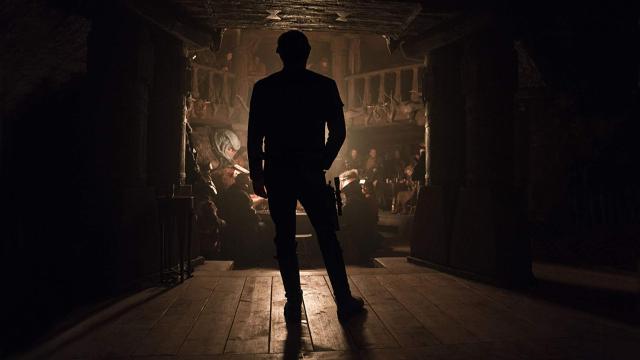Solo: A Star Wars Story was released one year ago this weekend—and in that year, it changed Star Wars in ways that have nothing to do with the Force. It changed how one generation views Star Wars versus the other.
How did that happen? Well, you have to go back to the beginning. Production on Solo was famously troubled and, though many rather enjoyed it, its box office grosses were by far the lowest of any recent Star Wars movie.
As a result, everyone involved in the franchise took pause. Solo proved that even if a movie has the words “Star Wars” in the title, it was not a guaranteed smash. With marketing, it’s even believed the film ended up losing money. A Star Wars film lost money. That feels unfathomable and is just the beginning of the story.
After Solo, rumours of Lucasfilm halting development on similar Star Wars spin-offs focused on Boba Fett and Obi-Wan Kenobi were chalked up to its lack of success. As was the announcement that, after the release of Star Wars: The Rise of Skywalker in December, it’ll be three years before we see another Star Wars film in theatres.
However, while it’s easy to blame all of this on Solo as a movie, it has less to do with the film itself and more the circumstances of its release. If you remember, Solo was released a mere five months after Star Wars: The Last Jedi, a mega-successful but rather polarising film in the franchise. And, because Disney didn’t want to cannibalise itself, it had to wait until after The Last Jedi was released to reveal almost anything from Solo.
The first images came out the first teaser revealed a few weeks later.
The Last Jedi? Eleven months early for the title and eight months for the trailer. Even The Rise of Skywalker, whose title and trailer came simultaneously, were still about nine months before release.
Solo got less than half the time of even the shortest of those. It was fighting an uphill battle. Han Solo famously said, “Never tell me the odds”—except this time, the odds were too much for even Han Solo to handle.
Here’s where we pause for a second and look at the calendar. Solo came out on Memorial Day weekend 2018. It was the first Disney Star Wars film to stick to that release date. A date that, historically, had always been a Star Wars weekend. From A New Hope to Revenge of the Sith, the first six Star Wars films all came out in late May of their respective years and those all did incredibly well.
May releases were the plan, originally, for The Force Awakens and Rise of Skywalker too, until J.J. Abrams pushed both those back from May to December.
(Sidebar: Abrams may be the real culprit in this. If The Force Awakens had come out in May 2015 as originally planned instead of December and done only like $873 million instead of $1,309 million plus, Disney would have been very happy, never fathomed the potential of the holidays, and probably stuck with tradition moving ahead. I digress.)
But Solo, even with its production issues, never faltered. It came out over Memorial Day no matter the odds. And, very quickly, everyone realised two Star Wars films in five months was too much.
Back to the present. Disney recently set dates for the next three Star Wars films coming after The Rise of Skywalker. They’ll all be coming out in, you guessed it, December of 2022, 2024, and 2026. Two years apart, which is double the length Disney has waited between movies since 2015. And all with that originally untraditional, now quickly becoming very traditional, December release.
Taking all of that into consideration, it seems like Solo’s ultimate legacy won’t have to do with its characters, casting, production troubles, or financial disappointment. No, what may end up being the true legacy of Solo: A Star Wars Story is it finally put the nail in the coffin of Star Wars tradition. It basically ended the idea of the films as a summer blockbuster. And, considering it’s one of the movies (along with Steven Spielberg’s Jaws) that defined what a “summer blockbuster” could be, that’s fairly significant.
Solo made it all but certain Star Wars movies will be a biennial holiday tradition, not a summer one, or even an annual one. And while Solo’s release isn’t the only factor in this (one example being that competition after the holidays is significantly less than during the summer, which leads to playing on more screens for longer), Solo changed, maybe forever, what a generation thinks of when they think of a Star Wars release. What’s new will soon become old. Summer becomes winter. Let the past die, release it in December if you have to.
Most people will never even think of it. When they think of Solo they’ll think of Donald Glover as Lando or L3-37 in the Falcon, Darth Maul’s return, or what a Lord and Miller version could have been. But, when your kids grow up and you bundle them up to head to see a Star Wars movie over a holiday break, you can remember a different time in Star Wars past.
A brief time when we had Star Wars movies every year, and another one when you could only see Star Wars over the summer. By then, those times will feel like a long time ago, in a galaxy far, far away.
